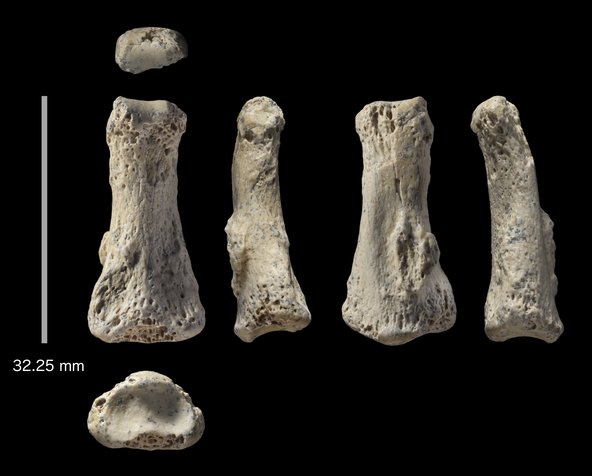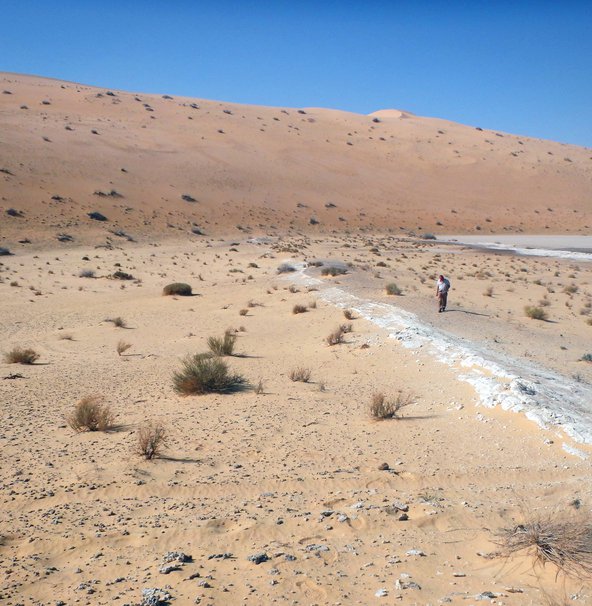News
Earliest Homo sapiens fossil found outside Africa and the Levant
9 Apr 2018
A study led by British Academy Postdoctoral Fellow Dr Huw Groucutt has uncovered the earliest directly dated Homo sapiens fossil found outside of Africa and the Levant.
Dr Groucutt and his colleague Professor Michael Petraglia led a large international team which discovered the fossil — a finger bone —at Al Wusta, in what is now Saudi Arabia. The finger is at least 85,000 years old according to radiometric dating conducted on the bone itself.

Fossil Homo sapiens finger bone of from the Al Wusta site, Saudi Arabia. Credit: Ian Cartwright.
The discovery, published today in a paper in Nature Ecology and Evolution, is the oldest directly dated Homo sapiens fossil outside of Africa and the Levant. It indicates that our species’ early dispersals into Eurasia were more expansive than previously thought. Dr Eleanor Scerri, British Academy Postdoctoral Fellow and Junior Research Fellow in Archaeology at the University of Oxford, was also among the authors of the paper.
Before this discovery, it was thought that early human dispersals into Eurasia were unsuccessful and remained restricted to the Mediterranean forests of the Levant, on the doorstep of Africa. The finding from the Al Wusta site shows that there were multiple dispersals out of Africa, and these spread further than previously known.
The bone was 3D scanned and compared to other finger bones, both of recent Homo sapiens individuals and bones from other species of primates and other forms of early humans, such as Neanderthals. The results conclusively showed that the finger bone belonged to our own species.
Using a technique called uranium series dating, a laser was used to make microscopic holes in the fossil and measure the ratio between tiny traces of radioactive elements. This revealed that the fossil was 88,000 years old. Other dates obtained from associated animals fossils and sediments converged to a date of approximately 90,000 years ago.
At the time the finger was deposited, the climate of the region around Al Wusta was not desert, but humid and monsoonal. Dr Groucutt and his colleagues conclude from this that movement out of Africa was helped by enhanced summer rainfall, leading migrating humans to occupy not only the woodlands of the Levant, but also semi-arid grasslands in the Arabian interior like Al Wusta. The authors suggest that adapting to this new environment would have been an early step on Homo sapiens' path to global success.

View of the Al Wusta site. Credit: Julien Louys.
Dr Groucutt said, “This discovery for the first time conclusively shows that early members of our species colonized an expansive region of southwest Asia and were not just restricted to the Levant. The ability of these early people to widely colonize this region casts doubt on long held views that early dispersals out of Africa were localized and unsuccessful.”
Dr Huw Groucutt is a British Academy Postdoctoral Fellow at the University of Oxford and an affiliated researcher at the Max Planck Institute for the Science of Human History.
Contact the press office
For further information contact the Press Office on [email protected] / 07500 010 432.

